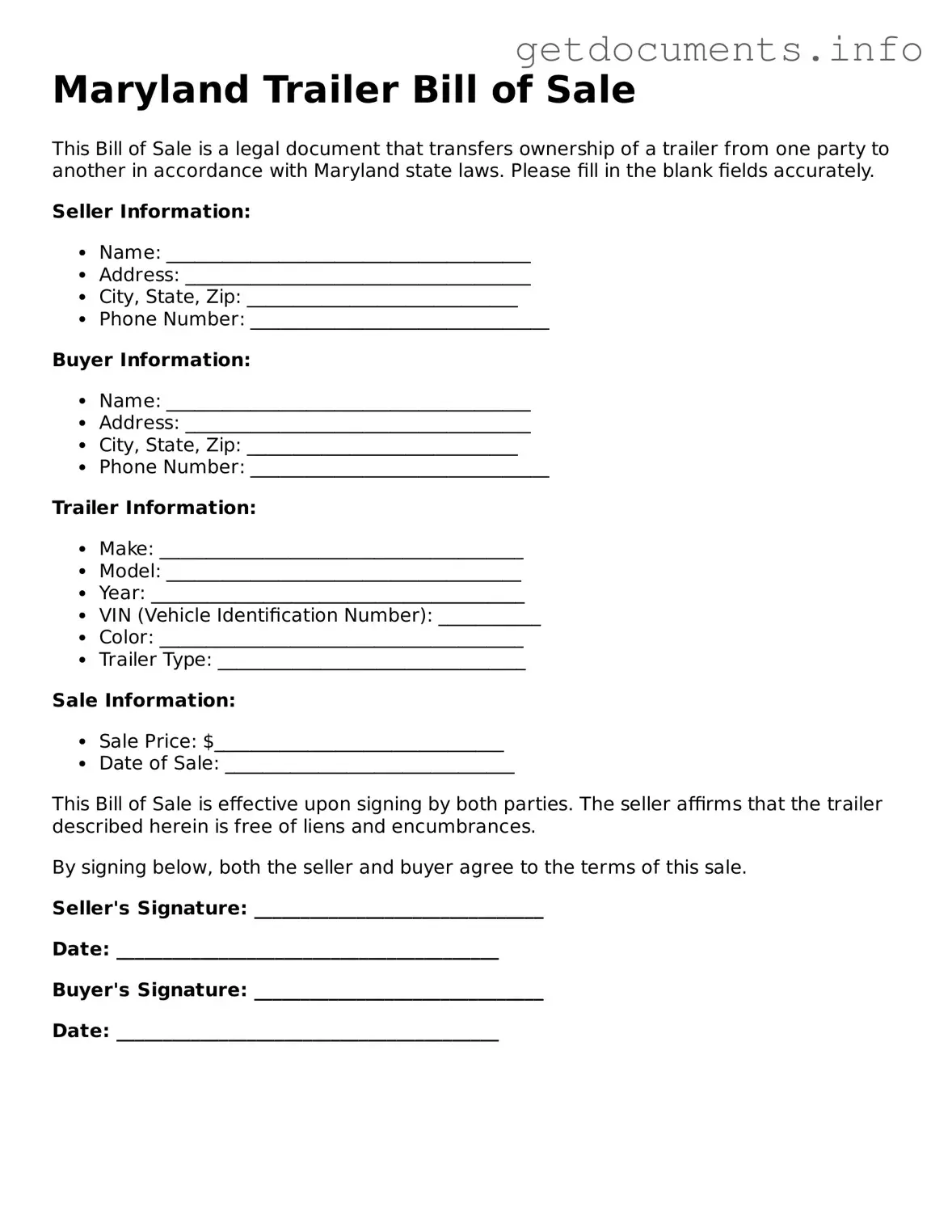Free Trailer Bill of Sale Template for Maryland
The Maryland Trailer Bill of Sale form is a legal document that records the sale and transfer of ownership of a trailer in the state of Maryland. This form provides essential details about the transaction, including the buyer, seller, and trailer specifications. If you're ready to complete your trailer sale, fill out the form by clicking the button below.
Access Trailer Bill of Sale Editor

Free Trailer Bill of Sale Template for Maryland
Access Trailer Bill of Sale Editor
Got places to be? Complete the form fast
Fill out Trailer Bill of Sale online and avoid printing or scanning.
Access Trailer Bill of Sale Editor
or
⇩ PDF File
